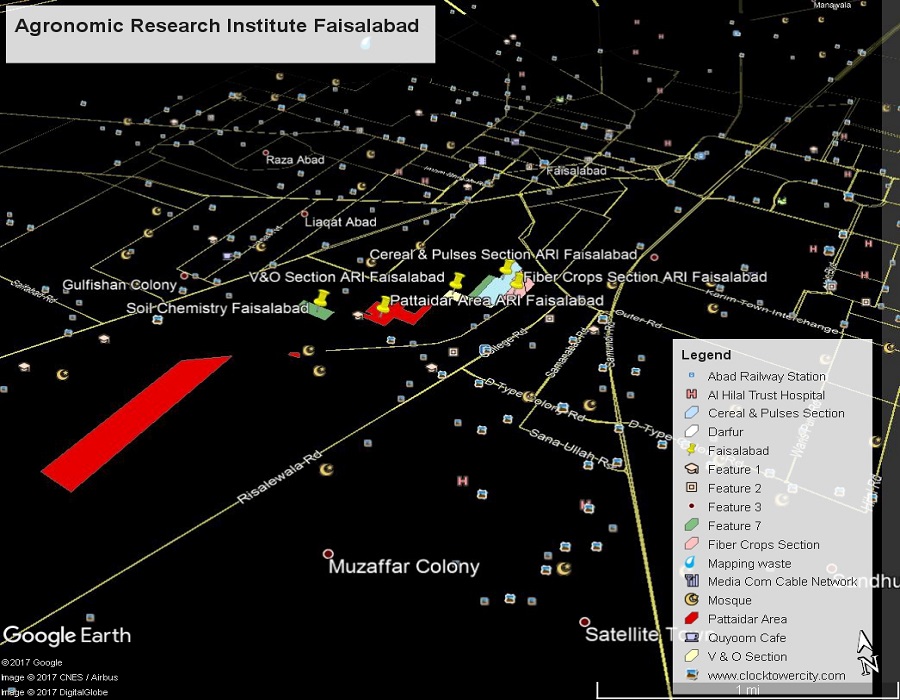Fiber Crops section, previously known as Jute Section was established in 1972-73 along with a project entitled “Cultivation of Jute in Punjab” with the objectives to see the feasibility of jute cultivation in Punjab Province, to work out the economics of jute cultivation as compared to its competing crops, to standardize the various cultural practices, to find out the nutrient and irrigation requirements, retting techniques, introduction and evolution of high yielding varieties etc. Initially this project was funded by Pakistan Agricultural Research Council, Islamabad upto 1980-81. Afterward financial responsibility of the Project was took over by Govt. of Punjab on the basis of sufficient preliminary research work done on jute. Later on, in order to multiply jute seed under the expert supervision of the technical staff, another ADP project entitled “Jute Seed Multiplication at Dhakkar Farm” was started to meet the seed requirements of jute growers. During the nineties the designation of Jute Agronomist was redesigned as Agronomist (Fiber Crops) and section name was changed to Fiber Crops Section and consequently attention was focused to other fiber crops including cotton etc. However, during the year 2009 research work on jute crop was also revived to meet the raw fiber availability of the local jute industry. Currently this section was working on jute, sisal and hemp as fiber crops. In addition to this research work was being carried out on organic farming and vermiculture.
Objectives
Research on the fiber crops is conducted with the following objectives:
- To find out the suitable sowing time of newly evolved strains
- To find out the appropriate nutrient and irrigation requirements of the fiber crops
- To evolve production technology for cotton, jute and other fiber crops
- To introduce and evolve high yielding varieties of jute with quality fiber
- Dissemination of approved production technology to the farmers
On-Going Research Activities
Following are the research activities of the section:
- Rearing of earthworms for vermicomposting
- Establishment of sisal (Agave sisalana) nursery
- Maintenance and evaluation of jute germplasm
- Study of filial generations of jute (C. olitorius)
- Hybridization programme in jute
- Organic farming trails
- Efficacy of vermicompost on growth and yield of okra
- On farm compost formation
Achievements
Following are major achievements:
- Boll retention percentage of cotton increased when potash @ 95kg/ha in combination with boron @ 1.5 kg/ha was applied at sowing.
- Nineteen (19) lines of jute germplasm were maintained.
- Eleven (11) entries in F3 generation and three (3) entries in F4 generation were maintained.
- Sisal variety Pak Sisal was approved from Punjab Seed Council.
- Establishment of sisal nursery through bulbils and suckers.
- Identification of suitable crops for organic farming.
- Execution of different trials using organic amendments.
- Developed organic compost from crop residues, farm waste and earthworms for organic farming.
- Developed local spp. of earthworm rearing techniques.
Contact Us
Map

